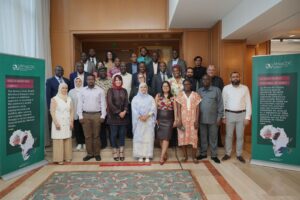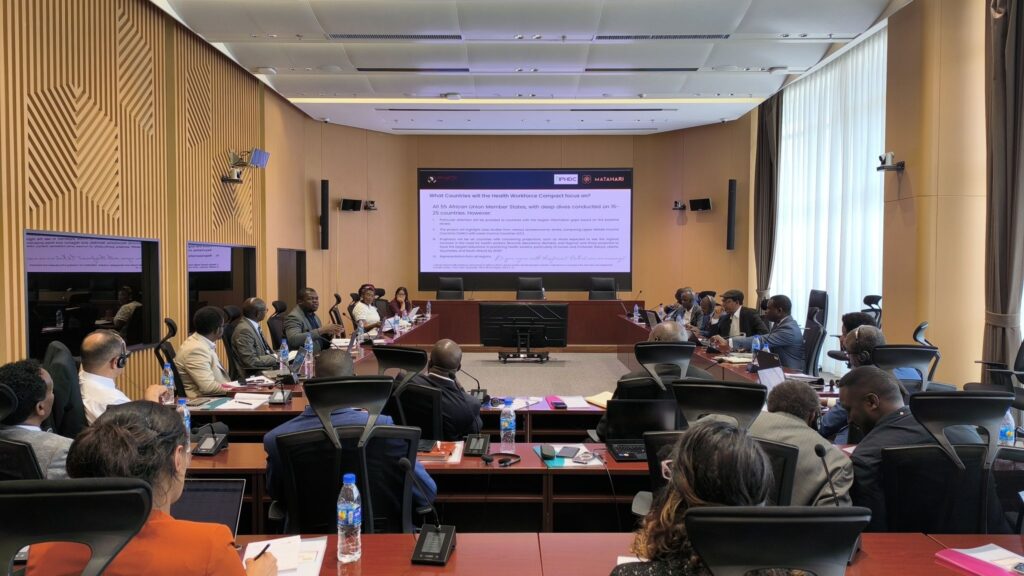
The Global Strategy for Health Workforce 2030 estimates that health workforce shortage in Africa is severe compared to other regions and Africa needs a total of 6.1 million more health workers by 2030 to deliver on UHC targets.
We were subcontracted to conduct a scoping review of health workforce gaps for 8 key cadres on the continent, and analyse the status of national health workforce strategies. Three in-person regional consultations were organised by the main contractor IPHDC (Kenya), enabling discussions, course-correction, and in-depth interviews on identified gaps from the literature. We engaged with all 55 African Union Member States health workforce directorates to triangulate findings from desk review and to develop recommendations that made sense for their contexts.
A 140-page Baseline Report was produced by Matahari, highlighting shortages in specialist workforce across the continent, including in oncology, psychiatry, obstetrics and gynaecology, and in surgical expertise. Also identified is the lack of a harmonised approach to continuous professional development, with midwives across the continent having insufficient CPD on emergency obstetrics, and laboratory workforce having insufficient CPD on biosafety, biosecurity, and other key areas.
We were able to collect data on oft-neglected countries on the continent, including the Sahrawi Arab Democratic Republic, who are unable to retain specialists due to living conditions and the overall trend of the general population towards outmigration, and from Equatorial Guinea, who did not have a health workforce strategy, but testified that there were key specialist shortages which included obstetricians and gynaecologists, cardiologists, and general surgeons, among other key specialist cadres. We also discovered continental trends such as the lack of clear and harmonised pathways for career advancement and continuous professional development for midwives.
Based on the scoping review, we developed recommendations, governance structures, workstreams, and principles to guide the implementation of a 15-year initiative on health workforce on the continent.
